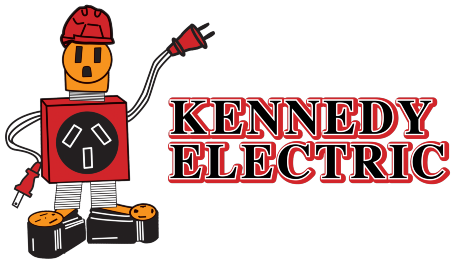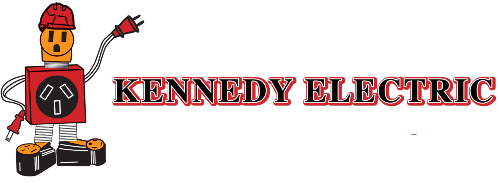Common Misconceptions About Electrical Safety
Several misconceptions can lead to dangerous practices and increased risks of electrical hazards
Electrical safety is vital to maintaining a safe home or workplace. However, several misconceptions can lead to dangerous practices and increased risks of electrical hazards. Understanding and addressing these misconceptions is essential for protecting people and property from electrical accidents. Here are some of the most common misconceptions about electrical safety and the truths behind them.
Low Voltage Means Low Risk
One of the most widespread misconceptions is that low voltage equals low risk. Many assume the potential for harm is minimal because the voltage is low. However, even low-voltage systems can be hazardous if not handled properly. Electrical shocks, burns, and fires can still occur at low voltages, especially if prolonged exposure or electrical current travels through sensitive body areas.
Electrical safety should be a priority regardless of the voltage level. Proper insulation, grounding, and appropriate protective equipment are necessary to lower risks. An electrician can guide on safely working with low-voltage systems and the precautions that should be taken.
Household Circuit Breakers Protect Against All Electrical Hazards
While circuit breakers are essential for electrical safety, they are not a catch-all solution. Circuit breakers are made to protect against overloads and short circuits by cutting off the electrical supply when these conditions are detected. However, they do not protect against all electrical hazards, such as ground faults or electrical fires caused by damaged wiring.
Ground Fault Circuit Interrupters (GFCIs) and Arc Fault Circuit Interrupters (AFCIs) offer additional layers of protection. GFCIs protect against ground faults, which can occur when electricity takes an unintended path to the ground, potentially causing shock. AFCIs help prevent fires by detecting dangerous arcing conditions in the wiring. Installing these devices in appropriate home areas can enhance electrical safety and reduce the possibility of accidents.
It's Safe to Use Extension Cords Permanently
Another common misconception is that extension cords can be a permanent solution for powering appliances or electronics. Extension cords are created for limited use and are not intended to replace permanent wiring. Over time, using extension cords for extended periods can lead to overheating, fraying, and an increased risk of electrical fires.
For long-term needs, installing additional outlets or upgrading the electrical system to accommodate the power demands is safer. An electrician can assess a home or business's electrical needs and recommend solutions that provide safe, permanent power sources without relying on extension cords.
Old Wiring Is Safe If It Hasn't Caused Problems Yet
Some people believe that as long as old wiring hasn't caused any issues, it is safe to continue using it. However, aging electrical systems can be a significant fire hazard, especially in homes that have not been updated in decades. Old wiring may be unable to manage the electrical loads of newer appliances and electronics, leading to overheating and potentially devastating fires.
Even if an older electrical system appears to be functioning correctly, it is important to have it inspected by a qualified electrician. Rewiring or upgrading the electrical system can prevent potential hazards and bring the property up to current safety standards.
DIY Electrical Work Is Safe with Basic Knowledge
Many homeowners assume that basic knowledge of electrical systems is sufficient to handle DIY electrical projects safely. However, electrical work requires expertise; even small mistakes can have serious consequences. Improperly installed wiring, faulty connections, and inadequate grounding can all lead to electrical shocks, fires, and property damage.
Hiring a licensed electrician for electrical jobs is the safest action. Electricians have the training, experience, and tools necessary to complete the job correctly and safely. They can also certify that the work satisfies local building codes and regulations, reducing the possibility of electrical hazards.
Power Strips and Surge Protectors Are the Same
Power strips and surge protectors are frequently used interchangeably but serve different purposes. A power strip provides additional outlets, allowing multiple devices to be plugged in simultaneously. In contrast, a surge protector offers protection against voltage spikes that can happen due to lightning strikes, power outages, or other electrical disturbances.
A power strip instead of a surge protector can leave electronic devices vulnerable to damage from power surges. For delicate electronics such as computers, televisions, and home entertainment systems, it is important to use a surge protector to protect the equipment against voltage spikes. An electrician can recommend the appropriate surge protection devices for different areas of the home.
All Electrical Fires Start with Visible Sparks
There is a misconception that electrical fires are always accompanied by visible sparks or obvious signs of danger. Many electrical fires start silently, with no visible warning signs. Faulty wiring, overloaded circuits, and arcing can cause fires to ignite behind walls or attics, where they may smolder undetected for hours before becoming noticeable.
Routine inspections by a qualified electrician can help identify and address potential fire hazards before they escalate. Installing smoke detectors in key home areas, particularly near electrical panels and in rooms with high electrical usage, can also provide early warning of electrical fires.
Understanding these common misconceptions about electrical safety is crucial for creating a safe home or workplace environment. Recognizing the limitations of specific safety measures and seeking professional assistance can prevent accidents and safeguard people and property from electrical hazards. Working with a licensed electrician is the best way to address concerns and verify the electrical system is safe and up to code.
Kennedy Electric is a reliable full-service electrical company serving residential and commercial customers in Citrus, Hernando, and Pasco Counties. We offer electrical remodeling, electrical repair, circuit breakers, electric panel installations, electric panel repair, electric panel upgrades, new construction electrical, and residential wiring services. Call today at (352)799-3434.


